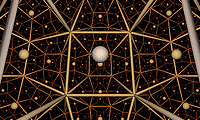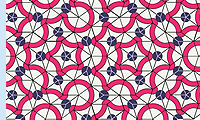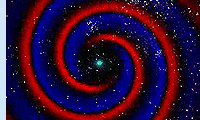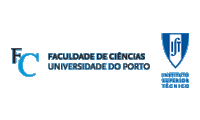




| XXth
Oporto Meeting on Geometry, Topology and Physics |
||
| 19th to 22nd July 2009 | ||
| |
Courses | Invited talks | talks | 1 | 2 | 3 |
|
| Main speakers |
Minicourse |
| Jurgen Fuchs |
Characters and coends
in conformal field
theory Abstract:
Lecture 1: The bulk state space in
conformal field theory
In this lecture I start by reviewing, as a motivation, various general results in CFT (two-dimensional conformal quantum field theory). In particular the relation between chiral CFT and full local CFT is made precise and some pertinent aspects of the so-called TFT-approach to rational CFT are described. Afterwards I discuss in detail algebraic properties of the space of bulk states of a CFT, as well as aspects of its character, which is the torus partition function. Lecture 2: Categories and coends In lecture 1 some informal knowledge about basic categorical notions is assumed. These as well as a few more advanced notions are now described in some detail. In particular the notions of ribbon category, modular tensor category, algebra and coalgebra objects, module of a monoidal category, finite tensor category, and factorizable finite tensor category are explained. The definition of the latter involves a certain Hopf algebra object $L$ (introduced by Majid and Lyubashenko), which can be constructed as a coend; accordingly the concept of a coend and related issues are also presented. Finally I discuss properties of the coend $L$ as well of another coend $F$ that turns out to be relevant in CFT. An important tool in the discussion is the graphical calculus for morphisms in strict monoidal categories. Lecture 3: The Cardy-Cartan torus partition function The categories of modules and bimodules over a finite-dimensional factorizable ribbon Hopf algebra $H$ are considered as models for the categories that arise in CFT. It is shown that the coend $F$ possesses all properties needed for the bulk state space of a CFT, and that the character of $F$ as a module over the coend $L$ for the $H$-bimodule category has the modular invariance properties needed for the torus partition function. A chiral decomposition of this character is described, which involves the Cartan matrix of the category of $H$-modules. Finally an outlook is given on how these results can be generalized to correlation functions of (not necessarily rational) CFT at higher genus. Preparation material: Appendices A and B.1-B.3 of hep-th/0503194 http://arxiv.org/abs/hep-th/0503194 Appendices of 1106.0210 http://arxiv.org/abs/1106.0210 Sections 2 and 4 and appendix A.1 of 1004.3405 http://arxiv.org/abs/1004.3405 |
| Terry Gannon
|
Postcards from the
edge: modularity,
K-theory and subfactors in 21st century CFT Abstract:
We begin by reviewing the blood and guts of
conformal field theory: a tower of mapping class group representations,
and with it the fusion rules, partition functions, etc.
We'll probably digress at some point and dabble in Mathieu Moonshine, just because it's there. Then I'll tell a story, about K-theory and CFT. I'll finish by explaining that subfactors predicts that there are many many well-behaved CFTs out there, waiting to be discovered! |
| Yasuyuki
Kawahigashi
|
Superconformal Field
Theory and Operator
Algebras Abstract:
We will present operator algebraic approach to superconformal field
theory. It is a certain quantum field theory on the one-dimensional
circle. We emphasize representation theoretic aspects,
classification theory and connections to noncommutative geometry. Our method is functional
analytic, and there is another object called a vertex operator
algebra, which studies the same physical structure with an algebraic
method. We also make a comparison of the two approaches.
|
| Roberto Longo
|
Operator Algebras and
Boundary Quantum
Field Theory Abstract: TBA |